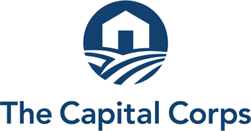Exhibit 99.2

February 10, 2020
Virgil Roberts, Board Chair
Wayne-Kent A. Bradshaw, Chief Executive Officer
Broadway Financial Corporation
5055 Wilshire Blvd Suite 500
Los Angeles, CA 90036
| Re: | Shareholder Letter to Broadway Financial Corporation |
Dear Sirs:
We write on behalf of The Capital Corps, LLC and its wholly owned subsidiary Commerce Home Mortgage (“Commerce” and collectively, “The Capital Corps”) to engage with the Board of Directors of Broadway Financial Corporation and Broadway Federal Bank (collectively “Broadway”), including to discuss the acquisition of Broadway for at least $1.75 to $1.80 per share – a significant premium to Broadway’s most recent closing price of $1.45. As one of Broadway’s largest shareholders we are committed to this project. In light of our existing ownership and the significance of this proposal to your shareholders, we are publicly releasing this letter on a Schedule 13D.
We congratulate the Board of Directors and management team of Broadway for their stewardship of the company over the past decade. The current team transitioned Broadway from a distressed depository institution on the precipice of failure to a safe and sound organization able to serve California’s underserved, underbanked, and minority communities. We applaud you for turning Broadway around.
However, Broadway is once again at a crossroads and shareholders are at risk. Our Board members have a long history working together on behalf of Angelinos to build a better future for our city, and we have built our relationships on a foundation of candor and transparency. In this spirit, we share the concerns below to protect Broadway’s franchise, to reassure the communities it serves, and to spur the urgent actions necessary to protect and maximize shareholder value.
We are concerned that Broadway may be listening to Wall Street advisors instead of focusing on the community it banks. For instance, the Board’s decision to adopt a highly complex poison pill this past September was difficult to square with its stated goal of enhancing shareholder value. Thisnon-shareholder-approved poison pill offends good governance, is destructive to shareholder value, violates ISS and Glass Lewis best practices, and runs counter to the best interests of disinterested stockholders. In fact, public shareholders are concerned that the poison pill only furthers the interests of Broadway’s largest insider, Gapstow Capital Partners (“Gapstow”), to the detriment of its public investors and the Company itself.1 This maneuver has resulted in a stock price decline2, hurt Broadway’s trading liquidity and will limit Broadway’s ability to access the capital markets in the future.
https://www.thecapitalcorps.com/
| 1 | We are concerned that Gapstow may be asserting actual, but undisclosed, control over Broadway through its excessive ownership, Board representation, and deep management relationships. For instance, Broadway’s recent poison-pill appears to have harmed all investors as well as the Company’s ability to raise future capital for the sole benefit of Gapstow (i.e., by ensuring that no party can acquire any meaningful stake of voting common shares outside of a transaction that monetizes Gapstow’s large“non-voting” stake – effectively granting a new, unjustified andunpaid-fortag-along right to Gapstow’s interests in Broadway at shareholders’ expense.). The poison pill provides Gapstow unique blocking rights that could impact Bank Holding Company control assessments. |
| 2 | Broadway’s stock traded from a closing price of $1.73 per share the day Broadway adopted the Poison Pill to low of $1.26 per share this past week. This represents a decline of 27% from the announcement of the Poison Pill. |
